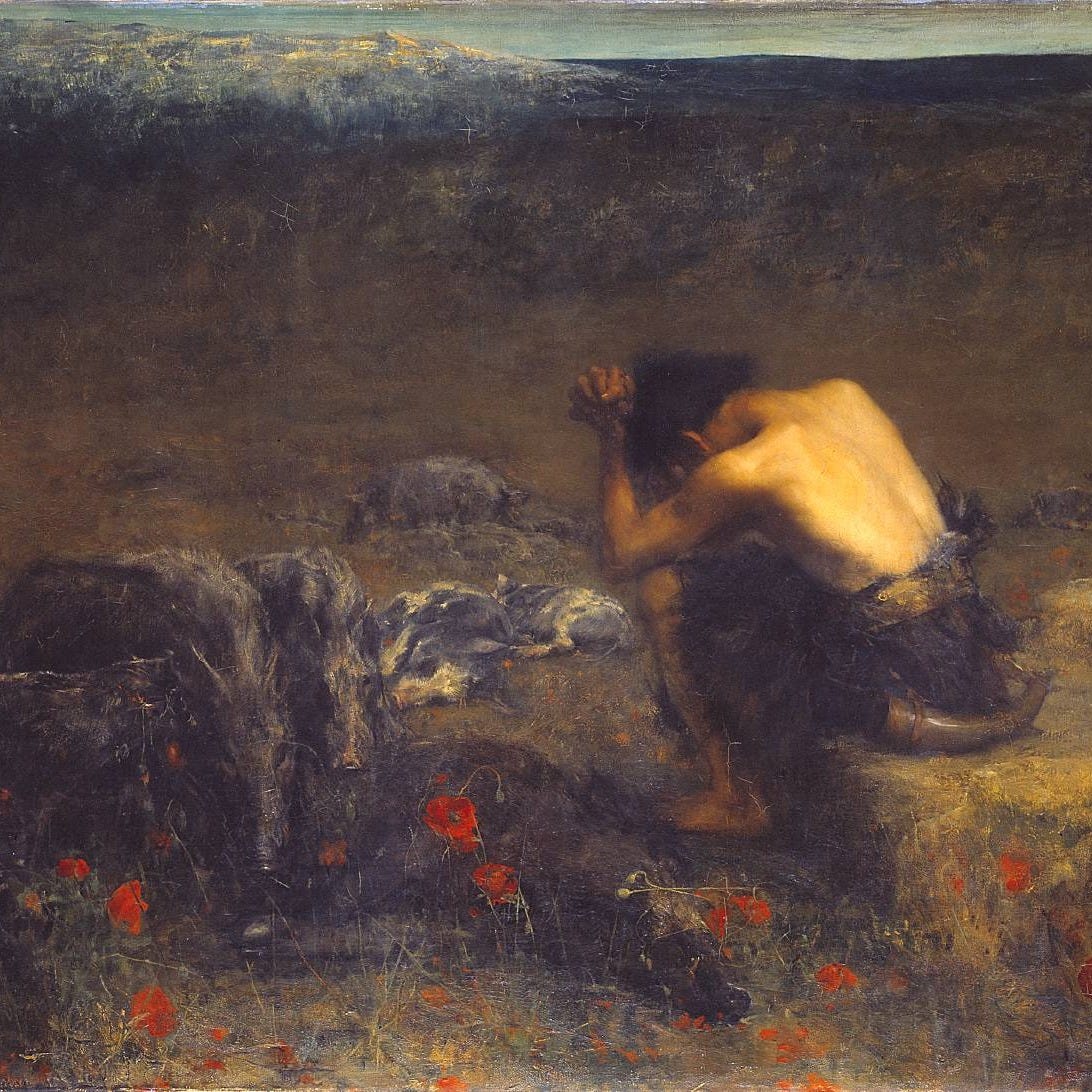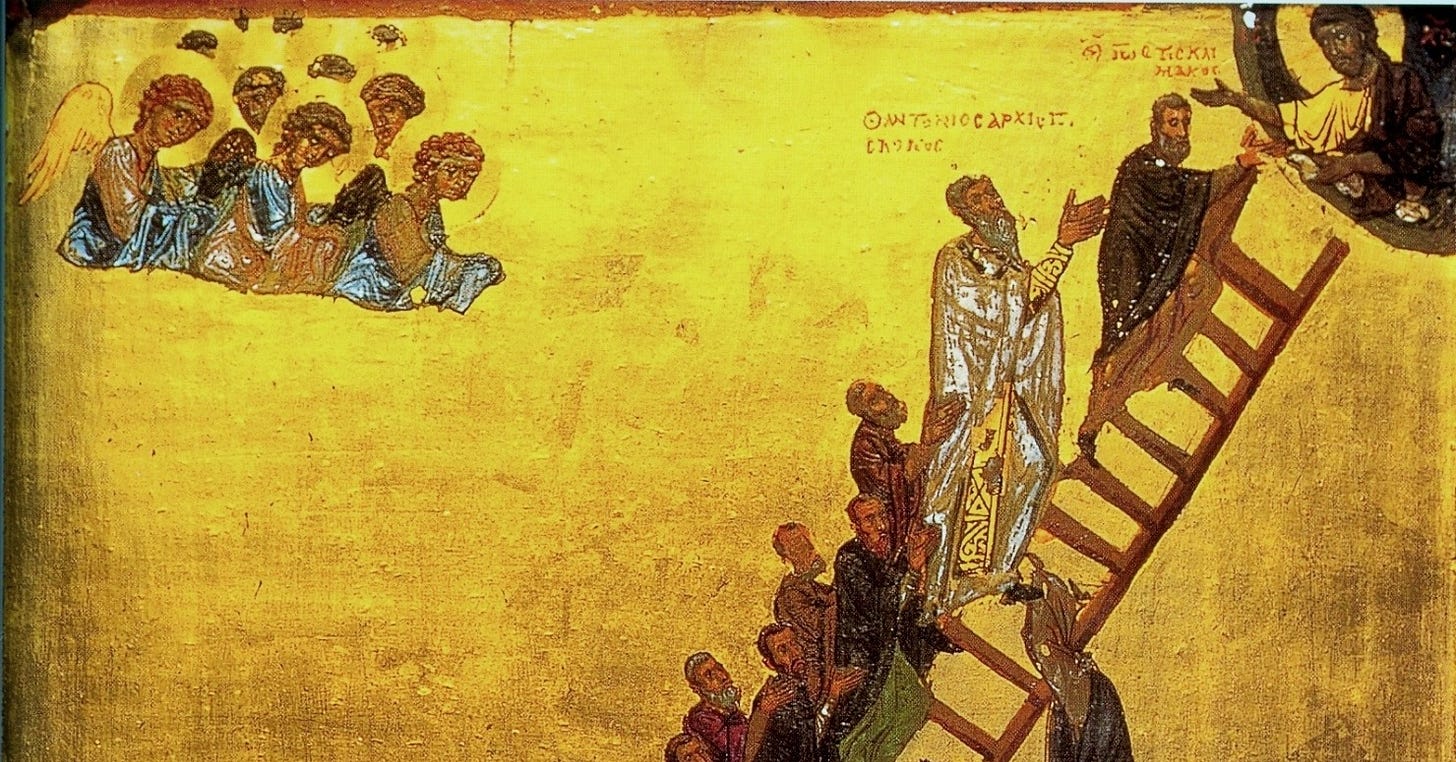Why Some Christians are Angered by Converts
The purpose of the Christian life is not what you think
Have you ever seen this?
News hits social media that a great sinner has converted to Christianity, and some Christians become very angry at the news. They respond with skepticism, disbelief, and claims the conversion is not real.
There are many reasons a Christian may act this way—but one deeper reason is that they fundamentally misunderstand the purpose of the Christian life.
For example, a girl leaves a life of pornography and gives her life to Jesus—and the anger and bitterness many Christians express is rooted in a feeling that it is unfair.
How can someone who lives a great life of sin suddenly be the same as someone who has strived for holiness his or her whole life? Are they the same? How is that just?
Well, in one way they are the same, and in another way they are radically different.
The answer lies both in a parable of Jesus and in an often forgotten truth of the Christian spiritual life.
Reminder: you can support our mission and get all our members-only content for just a few dollars per month:
New, full-length articles every Tuesday and Friday
The entire archive of members-only essays
Access to our paid subscriber chat room
The Purpose of the Christian Life
You may think the purpose of the Christian life is to avoid sin—but that is not the purpose. But if you think that is the purpose of the Christian life, then when a great sinner converts to Christianity, you may think it is tremendously unfair that they are now the “same” as you. You may feel cheated. What is the purpose of living the arduous life of virtue, carrying your cross, if you could just go sin and then ask for forgiveness and be just the same?
The feeling of bitterness and injustice is understandable—but only because they arise from a misunderstanding of the Christian life.
Jesus gave you the parable of the prodigal son as an introduction to this problem (Luke 15:11-32). You may recall that in the parable the younger brother selfishly asks his father for his inheritance early, and, after receiving it, goes and wastes it in sinful living. He then returns home in humility, and his father runs, welcomes him, and throws him a great feast. The older brother, who had stayed and labored under his father, feels bitter and cheated.
Christians teach that the lesson of the older brother is that you should rejoice when sinners return to God. In fact, Jesus teaches that even the angels rejoice when a soul returns to the Father (Luke 15:10). The soul was lost and now it is found, it was dead and is now alive.
Christians are called to celebrate the conversion of sinners—the parable makes this clear.
However… does this mean the younger brother and the older brother are now the same? Does it mean that those who labor for years doing the Lord’s will are essentially the same as those who convert on their death bed?
In one way, yes—but in another often forgotten way, no.
The Mystery of Theosis
The anger at great sinners converting is often rooted in a misunderstanding of the Christian life. How can this sinner now be equal to you when you have lived a life of virtue and made so many sacrifices to live a Christian life? It seems unjust, and people react with anger toward injustice.
In one way, the sinner is immediately equal to the person who has lived a good and holy life. Jesus makes this clear in the parable of the laborers, where those who work one hour in the field are paid the same as those who labored all day (Matthew 20:1-16). The equality here, despite the time labored, is that all those who are saved in Jesus Christ receive eternal life with Him. No matter if you sin greatly and then convert or quietly live in holiness all your life, the reward is the same: eternal life with God.
Yet, the purpose of the Christian life is not converting—that is just the beginning. The purpose of the Christian life is not to avoid sin. That is a necessary part but not the overall goal. The purpose of the Christian life is to ascend and become God-like, to configure your soul to Christ and become beautiful as He is beautiful. The soul, once it has received grace, is called to take up its cross (Luke 9:23) and climb the mountain of holiness toward God (Ps 24:3-4)—a narrow, difficult path of virtue and sanctity.
The Christian tradition refers to this as sanctification or theosis.
You see this mistake often. The Christian life reduced to a list of rules of what not to do. But, this is not a full picture of the Christian life. The Christian life is about becoming like God, and converting is just the beginning!
In this way, the sinner who converts and the one who has lived a life of holiness are not the same. One is just starting their journey and will have many challenges in bridling their appetites and conforming to Jesus; while the other has a soul that looks much more like Jesus and has years of cultivating holiness. The “older brother” would never feel cheated, as he would understand his newly converted brother is at the foot of the mountain. He has many years of formation and carrying his cross before him. And at the end of our lives, Christians teach that Jesus will reward souls based on the degree to which they have climbed the mountain of the Lord, to the degree they have become Christ-like (1 Cor 3:12-14; 2 Tim 4:8; James 1:12; Rev 2:10; 22:12).
In other words, all Christians are equal insofar as they all receive the unmerited gift of eternal life, but all Christians are not equal insofar as they experience that eternal life with God differently—for many Christian traditions hold that your capacity to participate in eternal life with God is based on how you conformed to God’s love in this life.
Here is a simple picture: in heaven, everyone’s cup is full but not everyone has the same size cup.
In fact, many Christians become angry at converts because they have not ascended! They have sat for years at the bottom of the mountain of holiness, not climbing toward God, but wallowing in spiritual slothfulness—thus, the recent convert is their equal in both eternal salvation and theosis!
Rejoice
The older brother should always rejoice alongside the angels when a sinner converts. In one way, he is the same as the younger brother, equal in receiving the unmerited gift of eternal life. In the other way, he is not the same. The younger brother will just be beginning his journey, while the older is much further along in his ascent to God. Yet, many Christians become angry at converts because they are still like converts in spirit—at the beginning of their spiritual life. They have fallen into acedia and are stunted in their theosis.
Rejoice when sinners convert and climb the mountain—and great will be your reward in heaven.
Dcn. Harrison Garlick is a deacon, husband, father, Chancellor, and attorney. He lives in rural Oklahoma with his wife and five children. He is also the host of Ascend: The Great Books Podcast. Follow him on X at Dcn. Garlick or Ascend.




My brother in Christ, I need to gently push back on this interpretation, because I think it reflects the very Pharisee thinking defending and reinforcing the holiness of the “truly deserving” that Jesus spent his ministry confronting.
The entire point of the Parable of the Prodigal Son is that God’s grace is scandalously generous - so generous it offends our human sense of fairness. And critically, the older brother’s resentment isn’t portrayed as wisdom or justified concern about his sibling’s spiritual formation. It’s portrayed as the problem.
He’s outside the feast, angry that his father would lavish such love on someone “undeserving.” Jesus is saying: that attitude reveals you don’t understand the Father’s heart at all.
Throughout the Gospels, Jesus consistently confronted the religious establishment - people who had devoted their whole lives to God, who knew scripture backwards and forwards, who had cultivated apparent holiness for decades. And what did he tell them? That tax collectors and prostitutes were entering the kingdom ahead of them.
Why? Because they weren’t keeping score. They knew they needed mercy.
God’s grace is not a performance review. It’s not a merit-based system where years of service earn you a bigger mansion or a superior experience of eternity. As Paul reminds us repeatedly, “all have sinned and fall short of the glory of God” - the lifelong churchgoer and the deathbed convert alike are saved entirely by unmerited grace.
Just like God does not “want you to be rich”, he also doesn’t give bigger cups to people with more prayer points.
"And at the end of our lives, Christians teach that Jesus will reward souls based on the degree to which they have climbed the mountain of the Lord, to the degree they have become Christ-like."
This is not a point I came to appreciate from reading the Gospels, the only texts I've seriously studied. I expected you would just say that those Christians who are angry at the converts should read Matthew's parable of the day laborers and be done with it! So you think that there is something correct in the reaction to converts?
I see two ways of reading this. One is as a reward for just actions. The second is that God is giving to each what they can handle, based on their capacity as you say. It is certainly not obvious that all people can ascend to the same degree not matter their will. I thought this was the whole point of salvation based on faith. Or do you think these come together?
I am not yet convinced but it is an interesting idea.